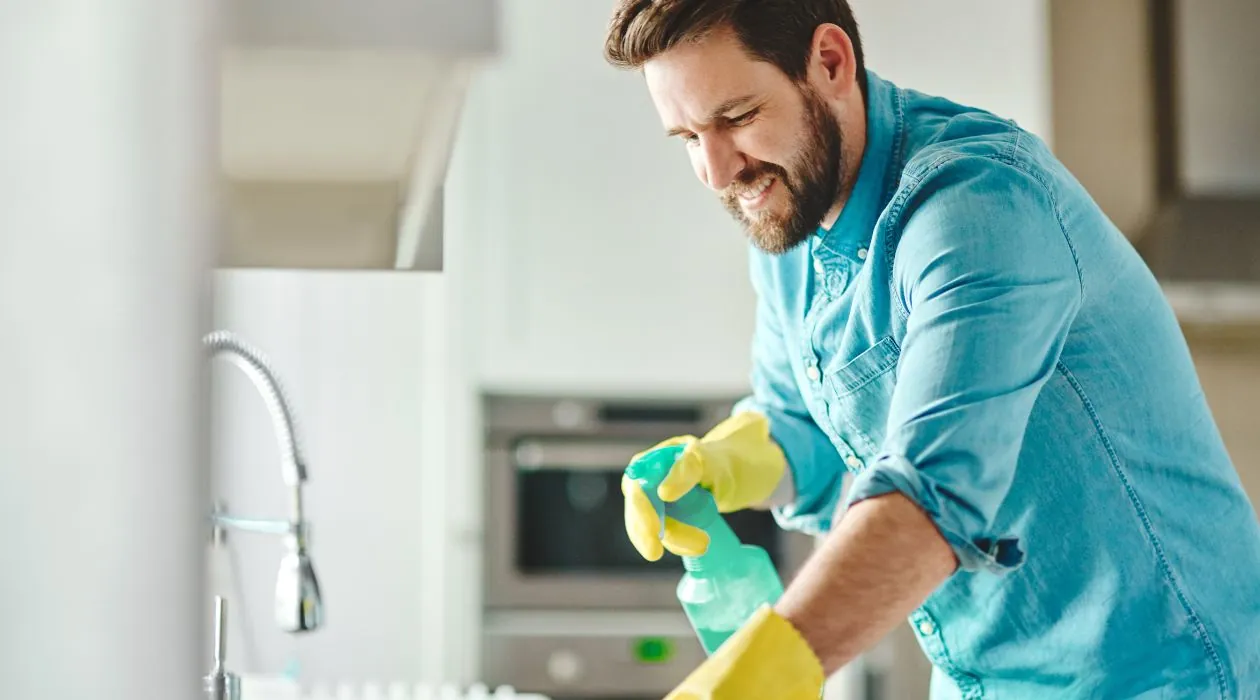When cleaning, most people use warm water. But does it also work with cold water? Here you can find out which water temperature is ideal for cleaning and what other tricks you should know to play blackjack online for fun.
Most people clean with warm water – this can be more pleasant for the hands and there is an assumption that this would loosen dirt better. But is that the case? Can’t you also clean with cold water?
CLEANING WITH COMMERCIAL CLEANERS
Only when washing dishes do you need warm water. With many commercial cleaners, cold water is sufficient for cleaning. Often the products contain alcohol, which evaporates when used in combination with hot water. Then the cleaning effect can be reduced and streaks remain, for example, when wiping. In addition, the evaporation of the alcohol can also be harmful to the respiratory tract.
You can see from the description on the back of the cleaner what temperature the cleaning water should be. And you will notice: An instruction to use warm water is however rather the rarity. In most cases, cold water is generally sufficient in our households, because the dirt is simply not that strong. But not only is the effect of most cleaning agents better with cold water, it also saves energy.
Cold water is also advantageous when cleaning windows, as it does not dry as quickly as warm water and therefore leaves more time to wipe the panes.
The only exception is dishwashing: here it is recommended to use warm to hot water, as this allows the detergent to work best and dissolve grease and other residues and kill germs and bacteria.
WHAT IS BETTER: COLD OR WARM WATER?
Even when cleaning with home remedies, cold water is usually sufficient.
Cleaning with home remedies is practical because you can mix your own cleaning agents and avoid synthetic ingredients. It is also usually cheaper and you can do without a lot of packaging. You can also use the required home remedies for other purposes in the household.
If you clean with home remedies, cold to lukewarm water is usually sufficient, depending on the area of application. Often, home remedies work best when they are left to soak in for a while. In most cases, the temperature does not make a difference. If you want to mix your own cleaning agents from several home remedies, you may need warm water so that the ingredients dissolve.
We have collected some ideas for cleaning with home remedies for you:
- Diluted with water, vinegar and vinegar essence are suitable for removing lime, as an all-purpose cleaner or glass cleaner. Cold water is sufficient here.
- Citric acid dissolved in water is also suitable for descaling. Here, it is even recommended not to heat the mixture, otherwise additional deposits can form.
- You can make a paste from baking soda and water that is suitable for cleaning ovens, but you can also use it in the bathroom. Here, too, the water may be cold.
- Soda can be used for washing, but also for washing dishes. Mixed with hot water, it also dissolves burnt-on stains from pots or baking trays.
- Since curd soap dissolves grease well, it is also suitable for cleaning, for example in the kitchen. Just grate it and dissolve it in warm water, then you can use it in your homemade cleaning products.
HOW TO MAKE YOUR OWN CLEANSER
Aggressive cleaning agents and cupboards full of cleaning agents are not necessary: With simple home remedies such as vinegar, citric acid, soda and baking soda, you can make almost all cleaning agents yourself. You’ll save plastic waste and money – and protect your health and the environment at the same time.
Bathroom cleaners, glass cleaners, toilet cleaners, scouring agents, tile cleaners, carpet cleaners, disinfectants, limescale removers, fabric softeners: advertising and the endless shelves of cleaning products in supermarkets make us think we need an extra product for every application.
So we quickly accumulate lots of more or less toxic products in colorful plastic bottles in our households. Most of them are superfluous, because: You can easily make your own cleaning products for any purpose. And you probably already have the ingredients at home.
Make your own cleaning products from vinegar, citric acid, soda, baking soda and curd soap.You can make most of the necessary cleaning products yourself from vinegar, soda and citric acid. If you add baking soda and curd soap to your home remedy supply, you are actually prepared for everything.
- Vinegar or vinegar essence and citric acid are particularly suitable for descaling, for example coffee machines or kettles, or for cleaning irons. But you can also use it to make all-purpose cleaner and toilet cleaner, for example. A shot of white household vinegar per wash cycle can even replace fabric softener.
- You can use soda as a cleaning agent, dishwashing detergent, and laundry detergent; it removes stains and cleans clogged drains.
- You can replace dishwashing detergent, oven cleaner, grout cleaner and much more with soda. This home remedy can also be used to clean upholstery with ease.
- To make some simple cleaning agents yourself, you also need curd soap. It is best to use organic vegetable curd soap.
